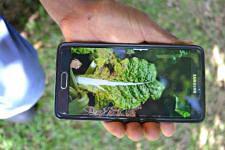Context
The rapid development of the emerging economies as globalisation advanced over the past 20 years has raised many people out of extreme poverty. Nevertheless four billion people worldwide still live on less than eight US-dollars a day. The acute pressure of problems, such as poverty, social change and environmental challenges, exists in juxtaposition to some highly dynamic economic actors and a high potential for innovation. Just as in industrialised countries, dynamic enterprises are central players in the development as they provide jobs, capital, know-how and tax revenues. However, business innovations are not yet designed in such a way as to integrate poorer population groups in the business models. Including people at the base of the income pyramid in business value chains, as producers, business partners or consumers, offers enormous market potential, estimated to be worth around USD 5 trillion.
Inclusive business approaches offer many opportunities for companies to harness the potential of those at the base of the income pyramid, as a new market segment. It is possible to improve the situations of low-income households sustainably using new income-generating opportunities and by providing access to innovative products and services. However, businesses face numerous challenges when tapping into these markets. These include the inadequate legal and regulatory frameworks, a lack of market knowledge and insufficient access to partner and support structures.
Objective
In three regions supported through German and international cooperation – the MENA region, Southeast Asia and southern Africa (SADC) – poor population groups benefit from inclusive business models with a focus on ecological, social and economic development.
Approach
The programme has established responsible and inclusive business hubs (RIBH) in the MENA region, Southeast Asia and the area of the Southern Africa Development Community (SADC). The hubs provide advice on the development of responsible and inclusive business models, and are intended to stimulate improvements to the living conditions of people at base of the income pyramid in the partner countries.
To foster sustainable and inclusive business activities, the RIBHs develop training and advisory services, which they then implement on a pilot basis. They support established companies, social enterprises and start-ups in developing inclusive business models, and encourage their inclusion in networks of relevant actors. The hubs therefore serve as mediators, bringing together German development cooperation, the local and international private sector, and local intermediaries. Thanks to their regional presence, their know-how and the established networks and partner structures, they also serve as contact points for regional players and intermediaries such as local chambers of commerce and business associations, universities and ministries.
Results
The RIBHs are currently cooperating with more than 20 companies, social enterprises and start-ups, with whom they are jointly trialling inclusive business models. So far, nine capacity development formats have been developed and conducted with several hundred participants. In Jakarta, Cairo and Pretoria the RIBHs have created networks and have become pioneers for responsible and inclusive business models.
By cooperating closely with relevant actors, such as the IceCairo innovation hub, the RIBH MENA mainly supports local small and medium-sized enterprises, start-ups and entrepreneurs. The hub organises awareness-raising and networking events, and implements pilot projects in cooperation with larger companies, one example being the Sustainable Start-Up Lab. Focal areas for these activities are tourism, agriculture and renewable energies.
The SADC RIBH prioritises agri-business, food and nutrition, as well as the involvement of local municipalities in sustainable tourism. Through its activities the RIBH has, for instance, provided various agricultural cooperatives with effective training in quality management, organic farming and balancing supply and demand.
The RIBH in Southeast Asia focuses on advisory services and the design of inclusive business models for the agriculture and tourism sectors, and on innovative information and communication technologies. It also supports members of Indonesia’s biggest employers’ association in the strategic design of their corporate social responsibility activities, and works with them to identify potential new inclusive business models for companies to pursue in the longer term.
